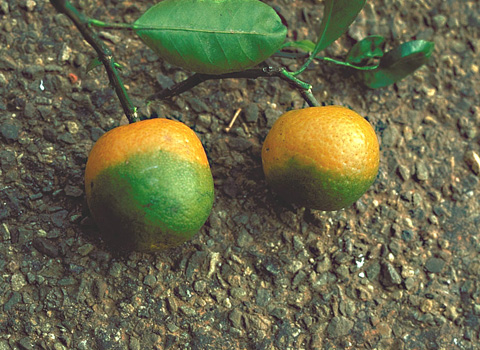Fossils of giant penguin found in Antarctica, fighting citrus greening disease in Brazil, Mexico and U.S. sign water-sharing deal for Colorado River
ARGENTINA
Argentine scientists have found fossils of a giant penguin in Antarctica. At two meters tall, the researchers estimate that the species is the largest ever found. The fossils date back 34 million years.

BRAZIL
Brazil’s citrus agriculture research center Fundecitrus is preoccupied with citrus greening disease, a bacterial infection of the plant transmitted by psyllids, or jumping lice. In the last year, Brazil has seen an increase from 3.8% to 7% of citrus plants showing symptoms of the disease. The only longterm solution to diseases like citrus greening disease, also known as Huanglongbing (meaning yellow dragon disease), is transgenics, said Fundecitrus scientific director Juliano Ayres at the XII International Citrus Congress in Spain this month. According to the UN’s Food and Agriculture Organization, Huanglongbing has already appeared in Mexico, Brazil, U.S.A., Belize, Costa Rica, Cuba, Guatemala, Honduras, Jamaica, Nicaragua and the Dominican Republic.
Anti-smoking campaigns in Brazil between 1989 and 2010 prevented 420,000 deaths, according to new research published in PLoS Medicine by Georgetown scientists. “The combination of public policy and strong support from government and NGO groups can bring surprising benefits to public health in relatively short time frames,” said David Levy, lead author and oncology researcher at Georgetown.
CHILE
Darwin’s frog, native to southern Chile, is seeing its habitat destroyed by plantations of pine and eucalyptus trees for lumber. Though the species, whose males brood offspring in their mouths, is currently listed as vulnerable on the IUCN Red List of Threatened Species, Claudio Soto-Azat, a professor at the University of Concepcion, is campaigning for its status to be changed to endangered. Soto-Azat is currently studying the continuing effects of the 2010 eruption of Chile’s Puyehue volcano on populations of Darwin’s frog.
MEXICO
Mexico and the United States have signed a water-sharing deal for the Colorado River. 30 million people across both countries depend on its waters. The deal is an amendment to a 1944 treaty and will allow Mexico to store water in Lake Mead when there is a surplus and for the United States to send a set amount of water to Mexico in times of drought—enough to supply three million homes, reports the BBC.
